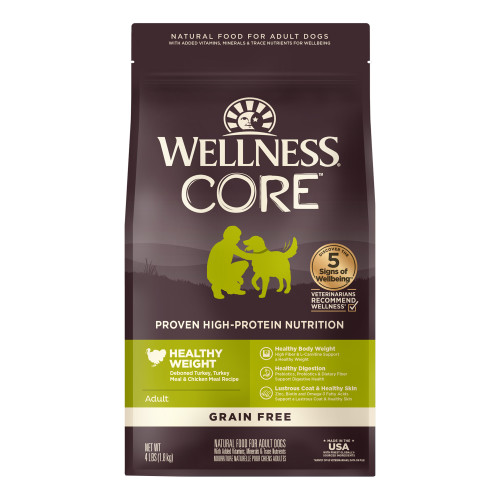June 2, 2023
Should I Let My Dog Eat Grass?
Should I Let My Dog Eat Grass?
Many theories have been suggested and conversations been had as to why dogs eat grass, but while the question is a simple one, the answer is often far more complex leaving pet parents frequently confused. Topping the list for reasons to be munching on that grass include the suggestion that dogs like to eat grass to help them vomit, especially if they have eaten something that didn’t agree with them. Other reasons include helping eliminate intestinal parasites, a mineral or dietary deficiency, good old boredom, an inherent behavior trait, a reaction to anxiety or simply… because they enjoy the taste of it.
How common is it?
A study conducted in 20081 of over 1500 dog parents reported that 68% said their dog was eating grass or some plant material on a daily or weekly basis. With such a high frequency the study then looked closer at the dog’s behavior before and after consuming that plant material to help understand if there were common behaviors or reasons. Interestingly, only 8% of pet parents reported that their dog appeared ill before eating the plants, 22% reported their dog regularly vomited afterwards and the diet that the dog was eating (raw food, kibble, wet food or homecooked) appeared to play no role whatsoever as to if a dog was more or less likely to eat plants.
Should you let your dog eat grass?
Most veterinarians would consider a dog eating grass as a normal canine behavior, but does that mean you should be let them eat grass? A good rule of thumb to keep in mind is if your dog is in otherwise good physical health, with no known ailments or diseases and on regular parasite prevention medication, then an occasionally nibble here and there is considered safe and simply a natural additional of fiber into their diet.
Key watchouts, however, include making sure that there is no herbicides, pesticides or fertilizers being used on the lawn that your dog likes to enjoy. These can be toxic for your dog. If the lawn has been recently treated, make sure you keep them well clear of that area. Another concern is that if are eating the grass in a commonly used area such as a dog park or open area, the risk of ingesting intestinal parasites such as roundworms and hookworms also increases due to the potential contamination of the grass from other dog’s fecal matter. This makes it especially important to keep up their regular parasite medication. But if neither of those scenarios appear true for your dog, then as long as they are eating their added greens in small amounts, it is generally considered okay to let them indulge. Should they increase their total consumption or appear to feel sick afterwards, always seek your veterinarian’s advice to ensure there is no serious underlying medical condition; or, if there is, to ensure they can receive appropriate treatment.
How can you stop the grass grazing?
With no clear reason for why dogs eat grass, helping them stop doing so can come in different forms with behavior modification being at the center:
- When your dog first starts to eat grass, one easy tip is to actively redirect them onto something they find more exciting or enjoyable. A treat, puzzle ball, some belly rubs or even a game of fetch are great options to distract from their grass nibbling.
- If their behavior is a sign of anxiety, talking with your veterinarian is a good place to start to address any underlying concerns. If you know the specific cause of their anxiety, helping to eliminate that may help reduce their grass eating at the same time.
- If grass eating is linked more to boredom, then top tips include increasing their daily exercise or adding some occupy treats or toys to keep them entertained with a more appropriate chew item.
- Adding some fiber rich fruits and veggies as treats to their diet may also satisfy their fiber needs. Don’t forget, however, to keep these in moderation and total no more than 10% of their daily calorie consumption.
Whatever the reason, it is always best to check with your local veterinarian if you are ever concerned about how much grass your dog is consuming before correcting their behavior. There may be a root cause that needs medical attention, and they can also advise on what may work best for your dog.
- Characterization of plant eating in dogs, Suedaa, Hart & Cliff, 2008, Applied Animal Behaviour Science.






